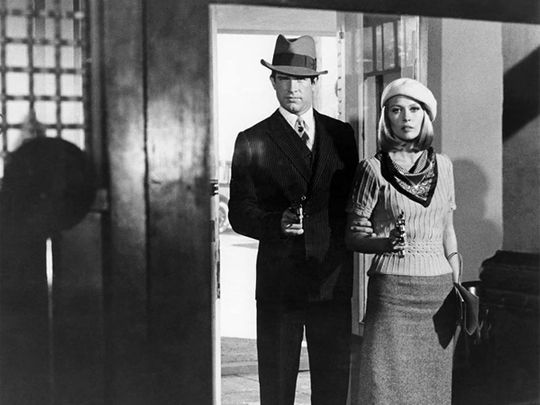
Welcome to the 1960s in the US – where fun, fashion, and rock and roll collide with civil rights demonstrations, cultural events, technological advancements, and the assassinations of politicians.
Click start to play today’s Crossword, which carries on the legacy of Hollywood into a transformative era in the film industry.
The turbulent social and cultural landscape of the US in the 1960s had a huge impact on Hollywood. One of the biggest things that happened in this decade is the collapse of its reigning studio system, which buckled under a landmark lawsuit. The US Supreme Court forced big studios to stop ‘block booking’ – the practice of getting cinemas to buy films in large bundles, in order to receive the few A-list films they actually wanted. The result was that studios could no longer dump a whole year’s worth of movies on theatres, and had to be much more selective in what they produced.
While the decision led to an increase in production values and budgets, films decreased in number. The year 1963 was the worst year for the film industry in 50 years – there were only 121 feature releases. Movie audiences declined because of the dominating force of television, and new forms of entertainment came into the mix, like records, TV movies and TV series. With fewer films to make, studios invested in foreign films, opening up Hollywood to world cinema.
Old Hollywood was on its way out, and it was time for New Hollywood to take centrestage – there was a renaissance in filmmaking, with a whole new generation of young, passionate directors taking the reins. Their timing was perfect, because they arrived just as the Hays Code officially ended, in 1968.
An informal name for The Motion Picture Production Code, the Hays Code was adopted in 1930 – it was a set of rules that governed American filmmaking for over three decades. To stop the US government from banning or censoring films, Hollywood decided to do the deed themselves with the Hays Code. Some of the restrictions as part of the code, included things like always punishing a person who performed an immoral act, on screen (it’s why the ending of The Big Sleep was much more violent than originally planned), and never using revenge as a theme or premise in stories, since it could be seen as glorifying violence.
Films such as Bonnie & Clyde, The Wild Bunch and The Graduate could only have been made once the Hays Code ended. And once Hollywood embraced the power of the narrative, without any blocking, it drew lasting talent – Francis Ford Coppola, Martin Scorsese, George Lucas and Steven Spielberg all absorbed the innovations and narrative devices of 1960s cinema and carried the torch into the next decade and beyond.
Which is your favourite film of this decade? Play today’s Crossword and tell us at games@gulfnews.com.









